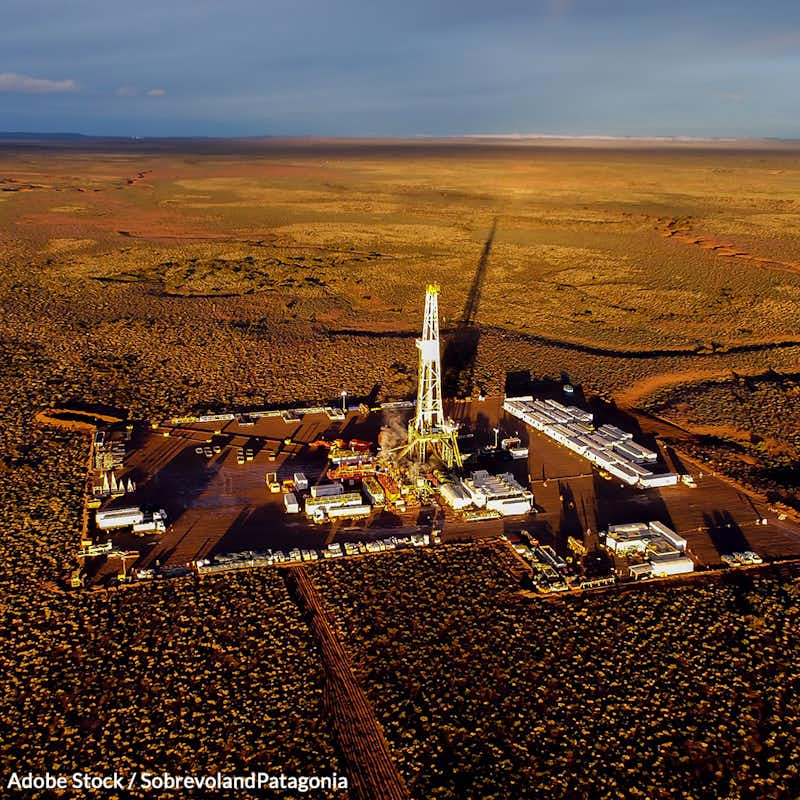Protect Public Lands from Fracking!
1,467 signatures toward our 50,000 Goal
Sponsor: The Rainforest Site
Fracking is a danger to the health and environment of all Americans.

Fracking has become one of the more popular means of drilling for natural gas in the United States. It involves injecting large volumes of water, sand and chemicals deep underground, at extreme pressure, to create fractures in rock formations, freeing oil and gas within1.
A significant amount of U.S. fossil fuel is extracted from beneath federal lands and waters. In 2017, at least 42 percent of coal, 24 percent of crude oil and 13 percent of natural gas came from mining operations on public lands2. In turn, these fuels accounted for nearly a quarter of U.S. carbon dioxide emissions between 2005 and 2014, according to a study from the U.S. Geological Survey3.
Fracking has the potential to pollute groundwater and local drinking water though a number of scenarios. Fractures from fracking can extend directly into surrounding shallow rock formations that contain drinking water supplies. The casing of the drilling tunnel could fail, causing fluids to escape into sources of drinking water or groundwater. Fracturing fluids may be accidentally spilled at the surface, which allows the fluids to contaminate surface water or seep into groundwater4.
Not only do the fracking fluids contain hazardous chemicals, the wastewater created by hydraulic fracturing activities contains both fracking fluids and trace amounts of naturally occurring but hazardous substances such as heavy metals, chlorides, radioactive materials.
Fracking is responsible for fragmenting forests and marring landscape, introducing large volumes of toxic and even radioactive waste into ground water systems and the air, derailing explosive, mile-long oil trains near cities and along great rivers, and killing people working at well sites. The practice has further been linked to inducing natural disasters like earthquakes, while destabilizing the climate on which we all depend and disrupting communities across the country4.
Despite volumes of scientific research showing how dangerous this practice is, more than 1 million acres of public and Indian lands in California were opened up to fracking in 20195.
The Keep It in the Ground Act has laid dormant in congress since 20176. A new ban on fracking on public lands would more likely consist of rewritten drilling and land management plans to stop new oil leases and permits.
Working together, the Bureau of Land Management under the Department of the Interior and the President of the United States can put these protections in place.
Fracking is a danger to the health and environment of all Americans. Sign the petition below and demand the Department of the Interior and Bureau of Land Management and the President of the United States ban fracking on public lands.
- Washington Post (2020), "Would you end leasing for fossil fuel extraction on federal lands?."
- Matt Pritchett, Journal of Environmental Law (2018), "Federal Lands, Federal Authority: The Case for Federal Regulation of Fracking on Public Lands."
- Matthew D. Merrill, Benjamin M. Sleeter, Philip A. Freeman, Jinxun Liu, Peter D. Warwick, and Bradley C. Reed, U.S. Geological Survey (2014), "Federal Lands Greenhouse Gas Emissions and Sequestration in the United States: Estimates for 2005?14."
- Food & Water Watch (May 2015), "Why We Need to Ban Fracking on U.S. Public Lands."
- Andrew Sheeler, The Sacramento Bee (12 December 2019), "Trump administration opens 1 million acres in California to fracking, drilling."
- Sen. Jeff Merkley, United States Senate (6 Nov 2015), "S.750 - Keep It in the Ground Act of 2017 ."
The Petition:
To the Secretary of the Interior, Bureau of Land Management and President of the United States,
The environment and health of Americans is being threatened by a climate crisis that we still aren't prepared to handle, and widespread fracking on public lands is hastening our demise.
Not only do the fracking fluids contain hazardous chemicals, the wastewater created by hydraulic fracturing activities contains both fracking fluids and trace amounts of naturally occurring but hazardous substances such as heavy metals, chlorides, radioactive materials.
Fracking has the potential to pollute groundwater and local drinking water. Fractures from fracking can extend directly into surrounding shallow rock formations that contain drinking water supplies. The casing of the drilling tunnel could fail, causing fluids to escape into sources of drinking water or groundwater. Or, fracturing fluids may be accidentally spilled at the surface, which allows the fluids to contaminate surface water or seep into groundwater.
The practice has further been linked to inducing natural disasters like earthquakes, while destabilizing the climate on which we all depend and disrupting communities across the country.
Despite volumes of scientific research and expert opinions explaining the eventuality of fracking, a previous administration opened up more than 1 million acres of public and Indian lands in California to fracking in 2019.
This is an environmental nightmare, and a serious threat to the health of Americans. I demand you rewrite drilling and land management plans to stop new oil leases and permits on public lands.
Sincerely,